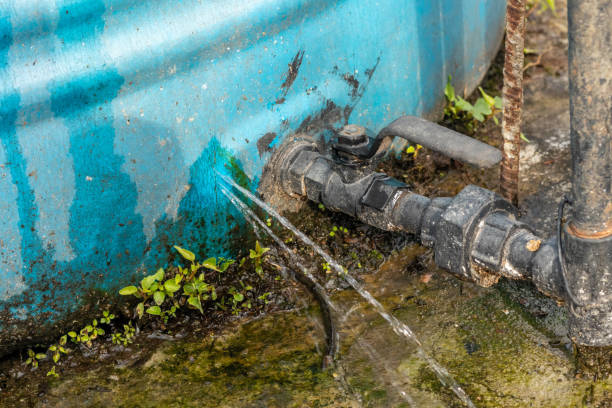Here is something all water storage tank owners agree on: leaks spell trouble! Apart from hurting your pocket because of the unnecessary rise in your water bills, leaks can create serious damage to your properties. So when this happens, it is very important to track down the cause immediately and repair it as soon as possible. Otherwise, your precious water supply and your hard-earned money may be going to waste.
To help you address this sneaky problem, here are a few things about water tank leakage that you should know:
- What are the common causes of water tank leakage?
Although tanks are intended to be durable and fit to hold water, they deteriorate over time. If your unit is a stainless-steel water tank, it is made of metal that is still prone to corrosion. When your tank starts to rust, leakage is quite inevitable. For polyethylene water tank, the most usual reason of leakage is a crack, which is typically caused by an object that unintentionally smashed down on the unit. If you’re using concrete water tanks, leaks might appear because of fractures as the unit will expand over time. Extreme temperature can also cause leakage. If you’re living in cold places, a pipe alongside your water storage tank might leak when it freezes and breaks apart.
- What to do if you detect leakage in your water tank?
As soon as you notice an unexplainable rise in your water bill, examine your water tank and the area around it. More often than not, leakage starts with a pipe or a connection leading to or from the tank. If this is the case, try to tighten or replace the faulty component and determine if that solves the problem. If not, you might need to call a water storage tank expert for assistance. (Save this hotline because this might come handy in the future: 0917-773-9318)
- Is it better to repair or replace a leaking water tank?
The answer depends on the primary cause of the leakage. If your unit has cracks or fractured, of course replacement is the wiser option. On the other hand, if the problem arises because of a defective pipe or valve, a quick repair shall do the trick.
- How to avoid leakage on plastic water tanks?
Make sure that the algae and dirt that accumulated in your unit are regularly cleaned. This will guarantee that your unit is free from external elements that usually cause cracks, fissure and holes/fissures. If your budget permits, you may also use fiberglass sheets that can help in preventing plastic leakage.
- What’s an easy solution for overhead water tank leakage?
The easiest way to prevent leakage is through the application of cement slurry. Although this trick works for fine cracks, it is a temporary one. You may also resolve the trouble by coating the surface with high-quality polymer-based cement coating. But the wisest thing to do is to ask for the help of water storage tank experts. For any leakage problem, you may visit this link: https://firstank.com/contact-us/.



